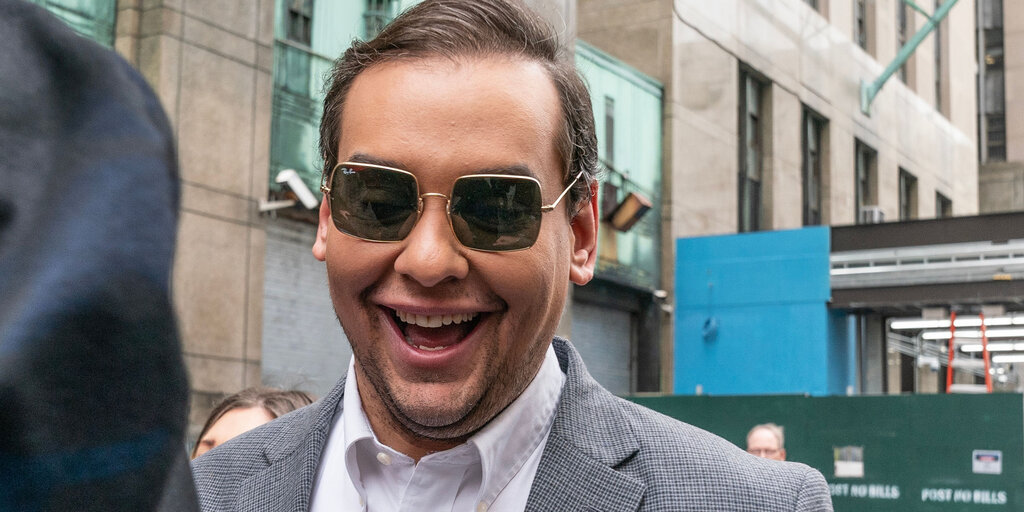Rep. George Santos (R-NY) tried to broker a cryptocurrency transaction with a political donor while running for Congress in 2020, according to a New York Times report. In the previously unreported incident, Santos teamed up with Republican supporters to pitch a complex cryptocurrency investment scheme to a loyal donor during his first unsuccessful House bid.
Santos and three associates claimed a wealthy Polish citizen wanted to buy crypto, according to the Times, but his funds were mysteriously frozen in a bank account. They asked the donor, a wealthy investor himself, to create a limited liability company that could supposedly gain access to the frozen money.
But the plan made no sense to the skeptical donor, who likened it to a “Nigerian prince” email scam designed to lure unwitting victims into transferring money. He suspected that Santos and his colleagues might even be the targets of such a scam.
When the donor asked for more information, he was told to first sign a nondisclosure agreement. Santos associate Michael LiPetri, Dominick Sartorio and another person’s names were on the NDA, the Times reported. But talks ended when the investor sought changes to the agreement.
LiPetri, now a lobbyist, downplayed his involvement to the Times. Santos’ lawyer said his client “only made the introductions” between LiPetri and Sartorio’s firm.
The bizarre Polish crypto deal highlights how Santos intermingled political relationships and business opportunities as a candidate in ways that raise ethical red flags, according to a review of his early political career by the Times.
In July 2020, a campaign contact connected Santos to Blue Flame Medical, a new company selling coronavirus testing kits founded by two well-connected GOP operatives. Santos signed on as a consultant who could earn 10% on any deal he orchestrated, the newspaper reported.
He soon separated from Blue Flame without arranging any sales. The company, which failed to deliver on contracts, was later investigated by federal authorities but not charged.
After leaving his Florida investment firm months later amid fraud claims, Santos opened a political consulting company with his campaign treasurer Nancy Marks and former colleagues. One of the firm’s first clients was Congressional candidate Tina Forte. Santos encouraged her to hire his company without disclosing he partly owned it, her campaign manager told the Times.
The consulting firm, Red Strategies, dissolved in September 2022 after irregularities in its campaign accounting. Santos’ own campaign filings showed questionable discrepancies around fees paid to WinRed, a donation platform, according to the newspaper.
In late 2022, as his election win looked likely, Santos coordinated a $20 million yacht sale between two donors and claimed in an interview he earned referral fees from such deals, according to the Times.
Prosecutors allege Santos then solicited $50,000 from donors for a PAC, pocketing the money instead of spending it on ads.
Santos has been charged with 13 felonies for misrepresenting his earnings, collecting unemployment, and siphoning funds from political supporters to his personal coffers. He has pleaded not guilty.
The Times investigation suggests that Santos has a penchant for blurring ethical lines to enrich himself through transactional relationships with deep-pocketed political supporters. Both the mysterious Polish cryptocurrency scheme and the yacht sale capitalized on Santos’ growing connections to Republican donors, whom he repeatedly treated as marks rather than constituents.
The Polish deal also underscores Santos’ early interest in the high-risk, high-reward world of digital assets.
During his 2022 campaign, Santos boasted false claims of working for top Wall Street firms and attaining vast wealth by age 19 through crypto trading. In reality, records indicate he lived with financial constraints prior to entering politics.
The outlandish resume helped Santos secure over $500,000 in loans from supporters he could not repay, prosecutors allege.
While the Polish crypto deal did not pan out, it offers an illuminating window into Santos’ business instincts circa 2020. He eagerly embraced get-rich-quick schemes that capitalized on hype surrounding digital currencies, according to the Times.
And he consistently treated political supporters more like lucrative business contacts than committed constituents. Santos’ brazen attempts to enrich himself have continued since taking federal office this year.
The House Ethics Committee is currently investigating Santos over potential violations of finance rules, disclosure requirements and other standards of conduct. The cryptic Polish crypto deal adds one more data point to an emerging pattern of ethical impropriety.
Editor’s note: This story was drafted with Decrypt AI from sources referenced in the text, and fact-checked by Ozawa.
Credit: Source link















































